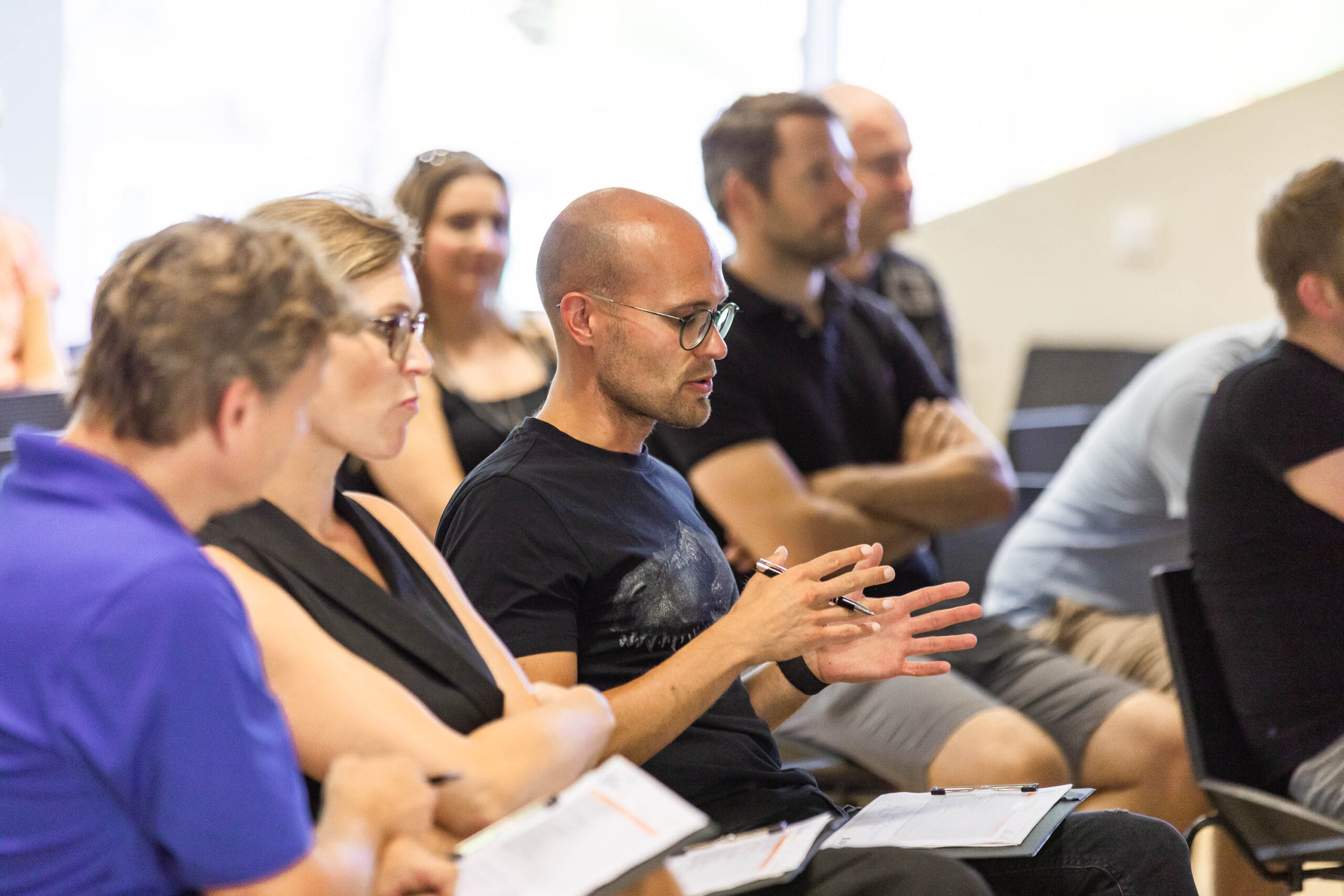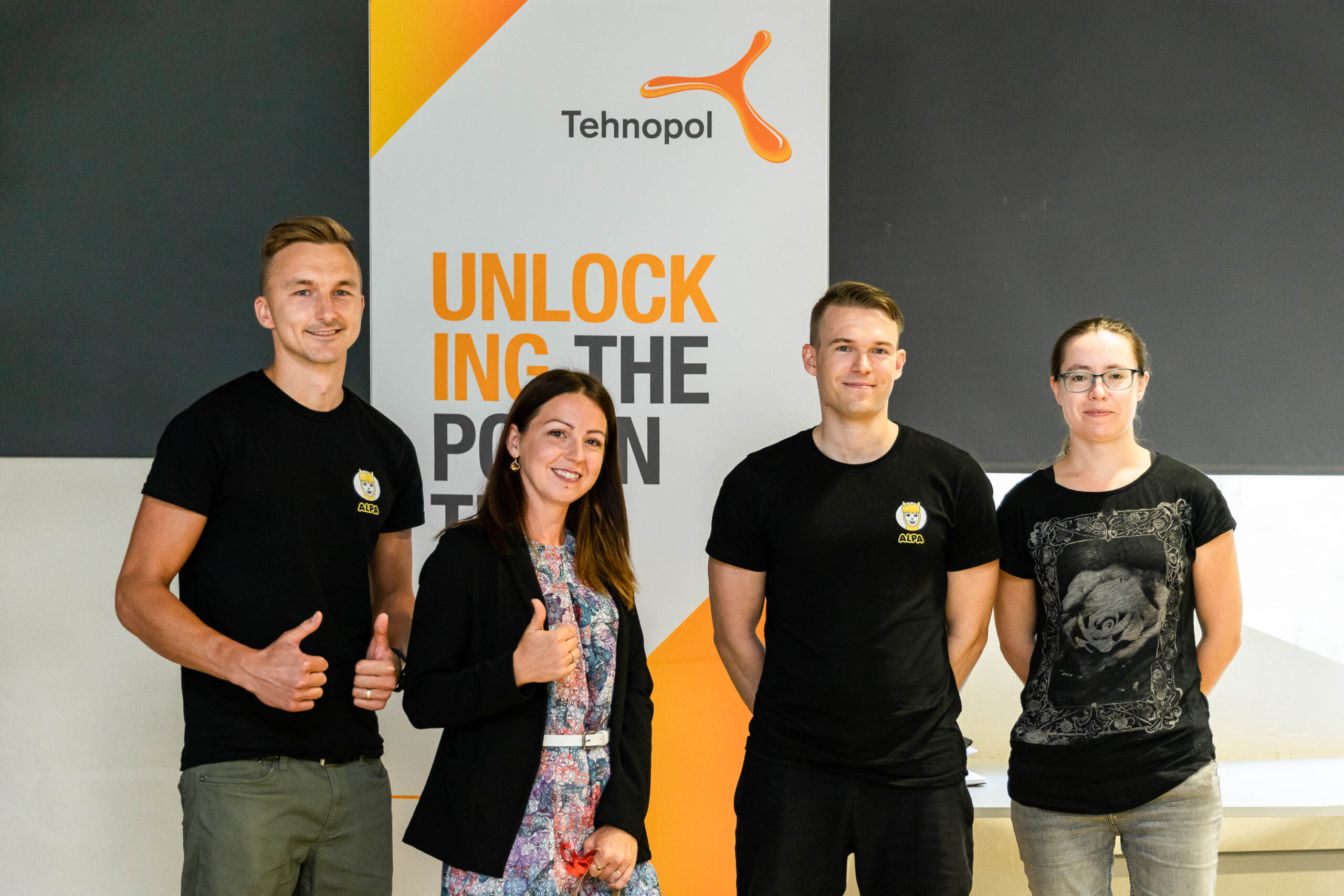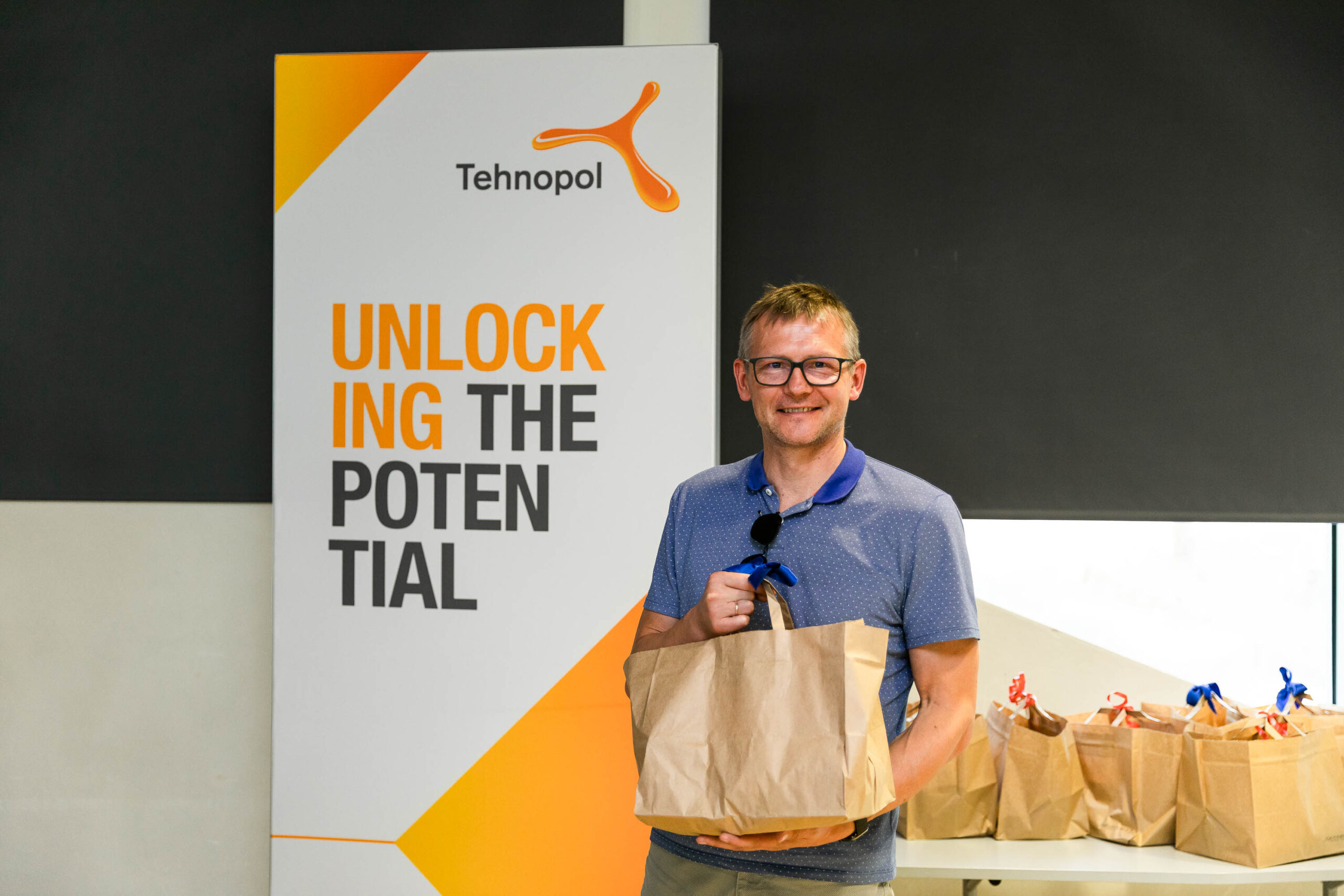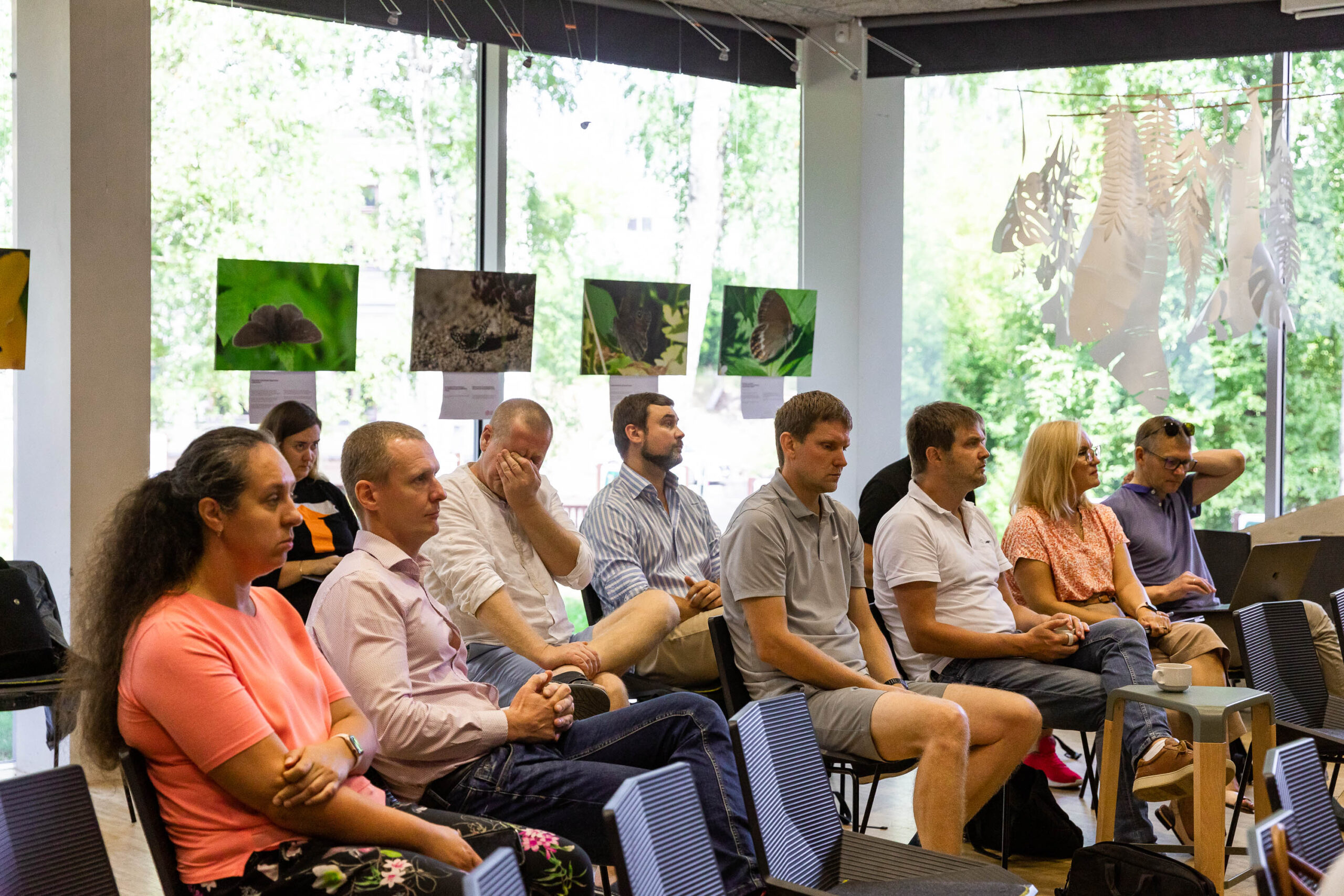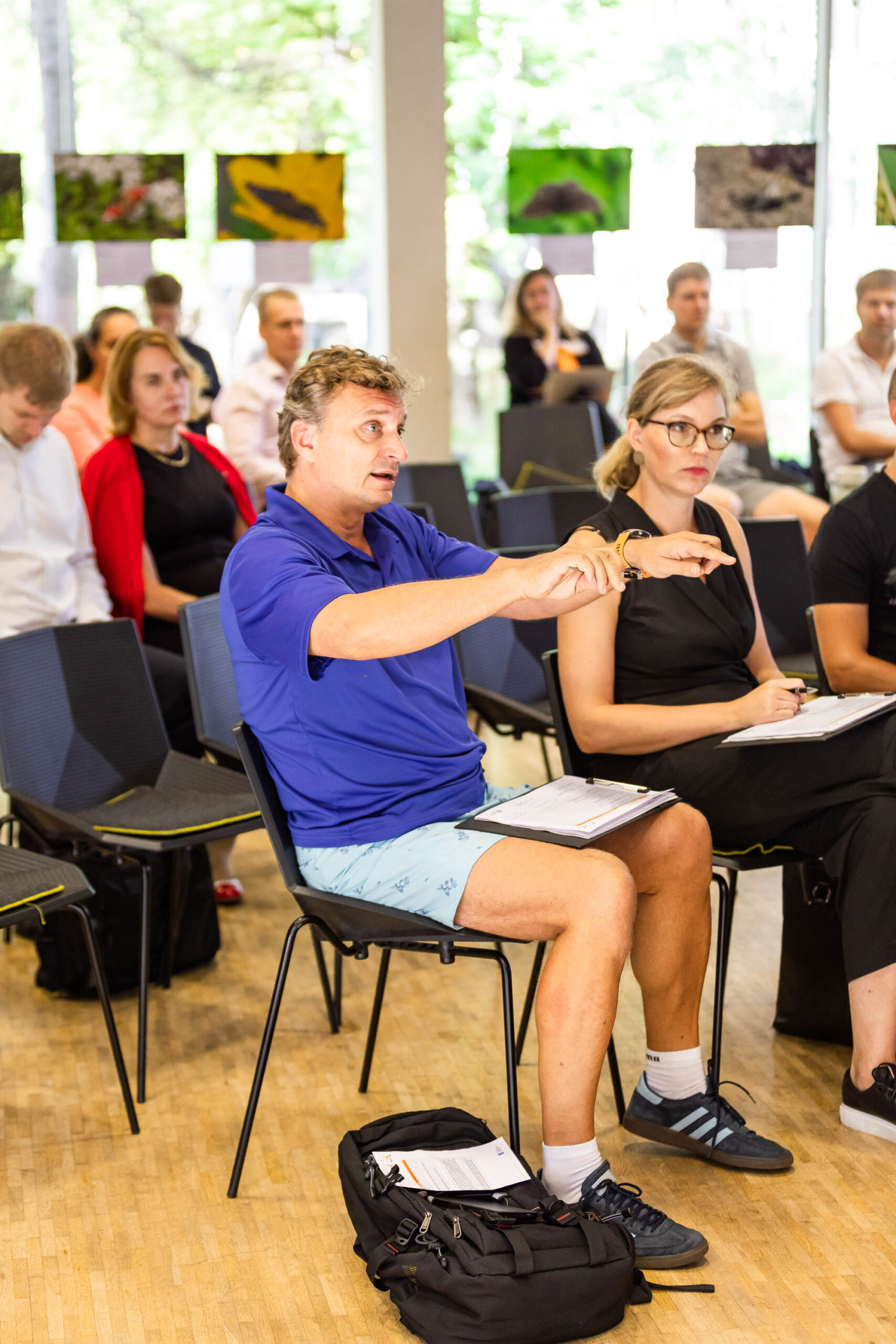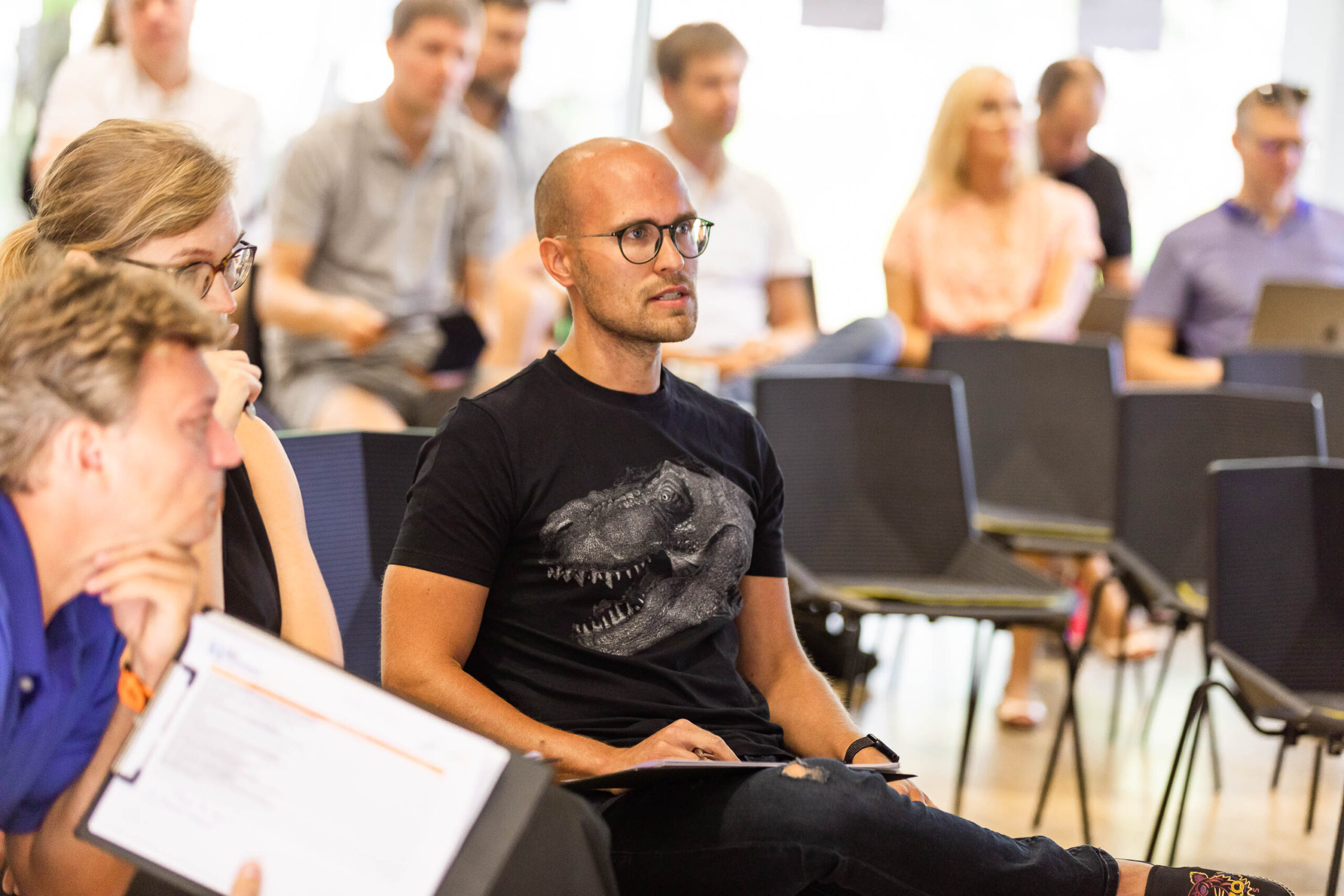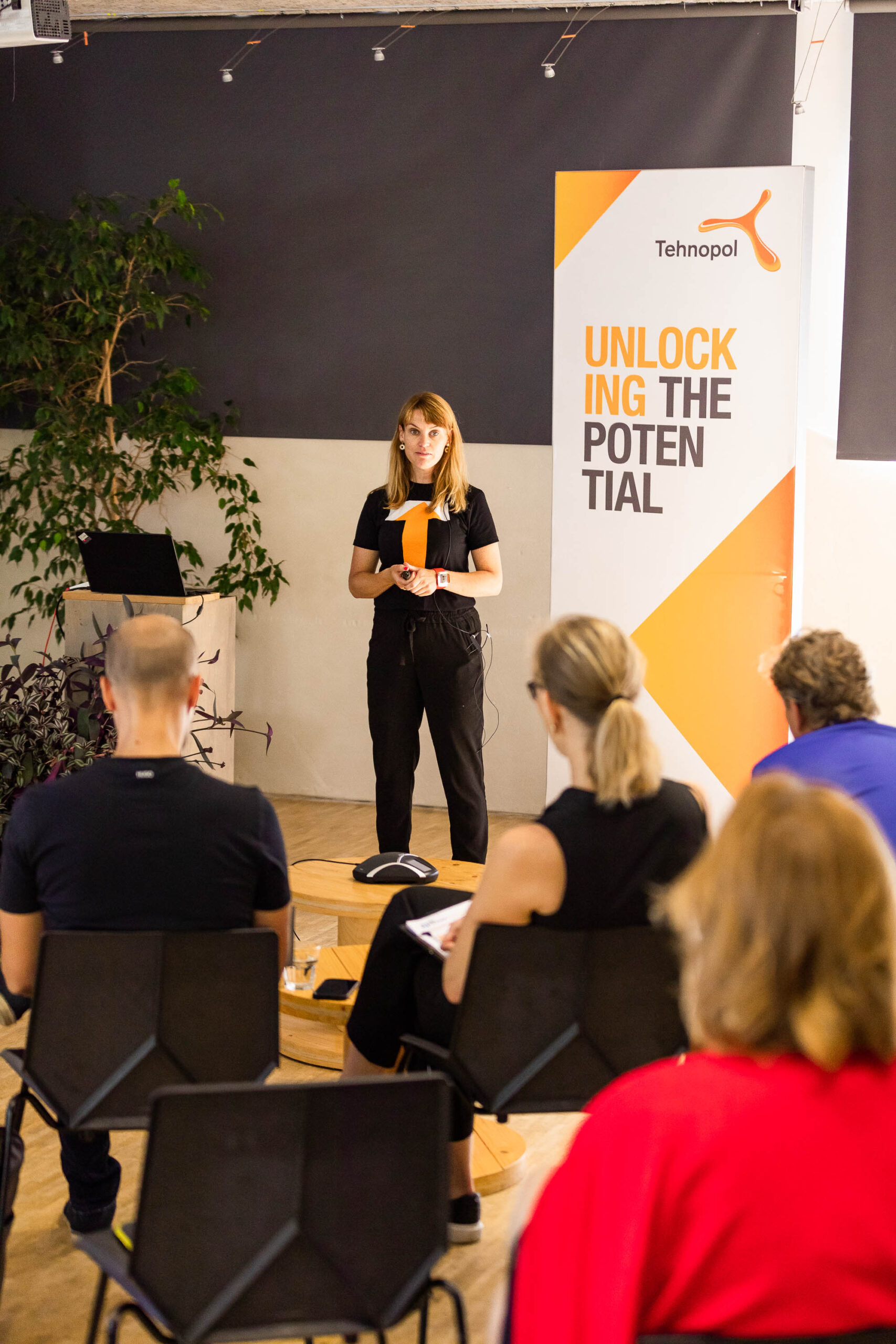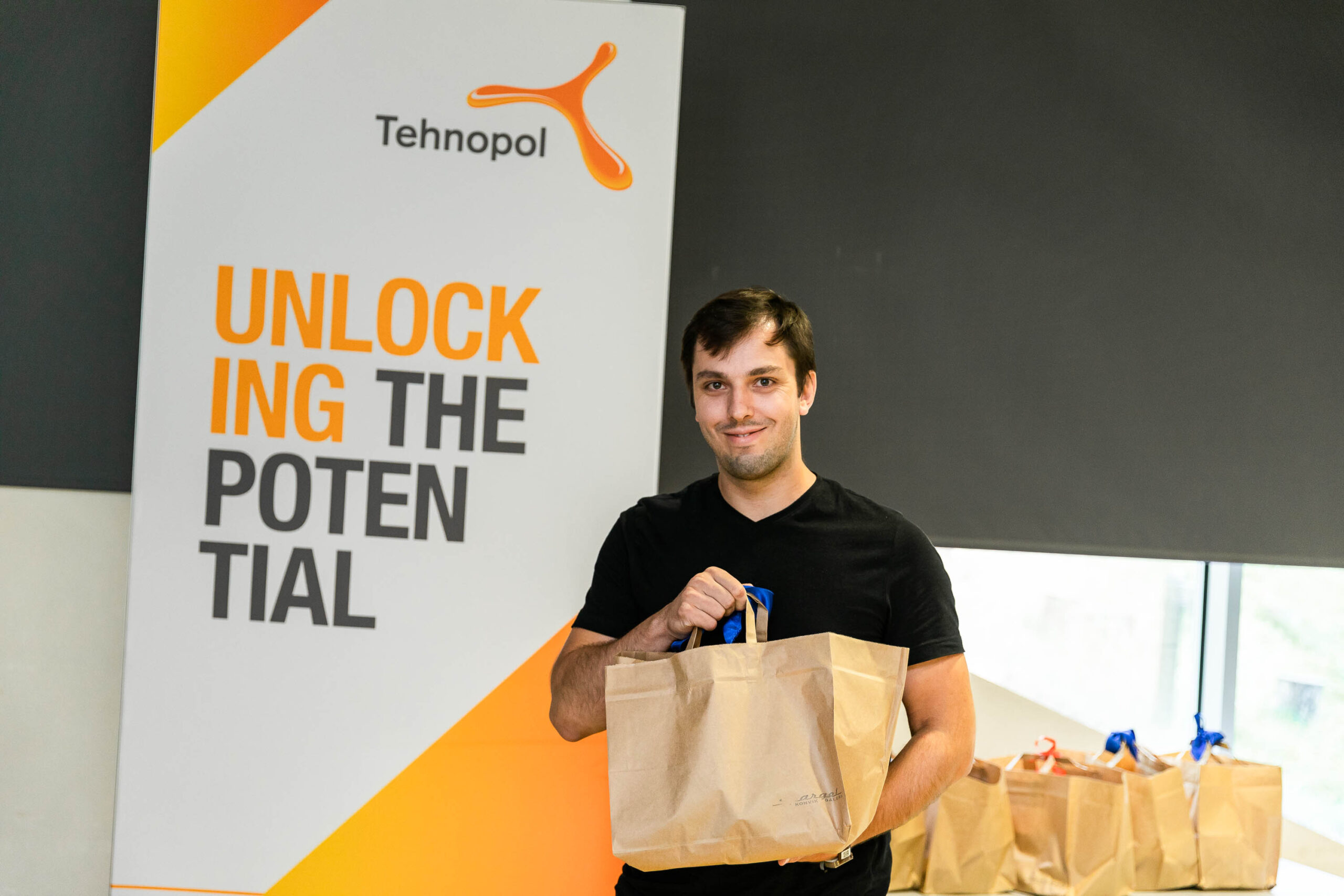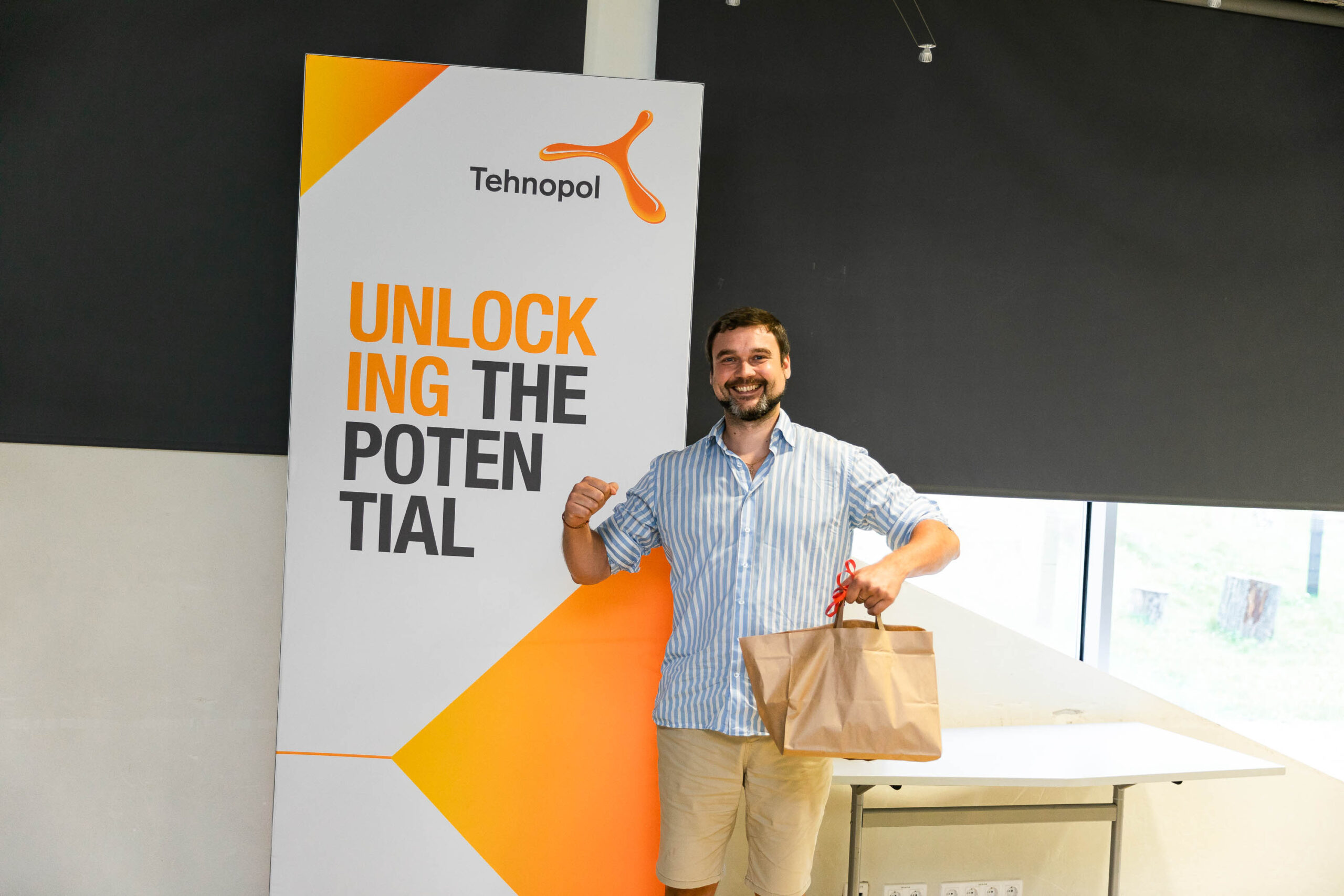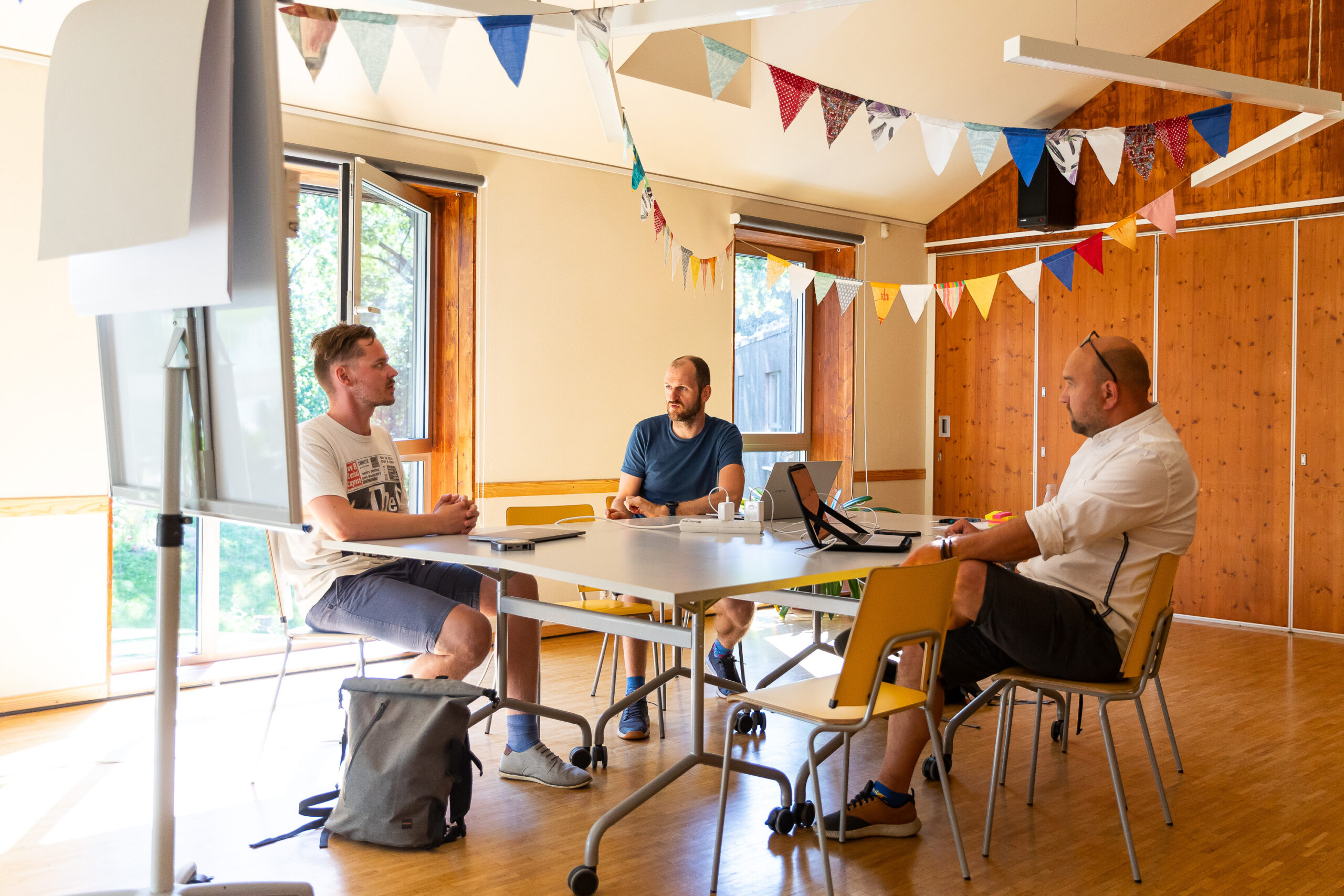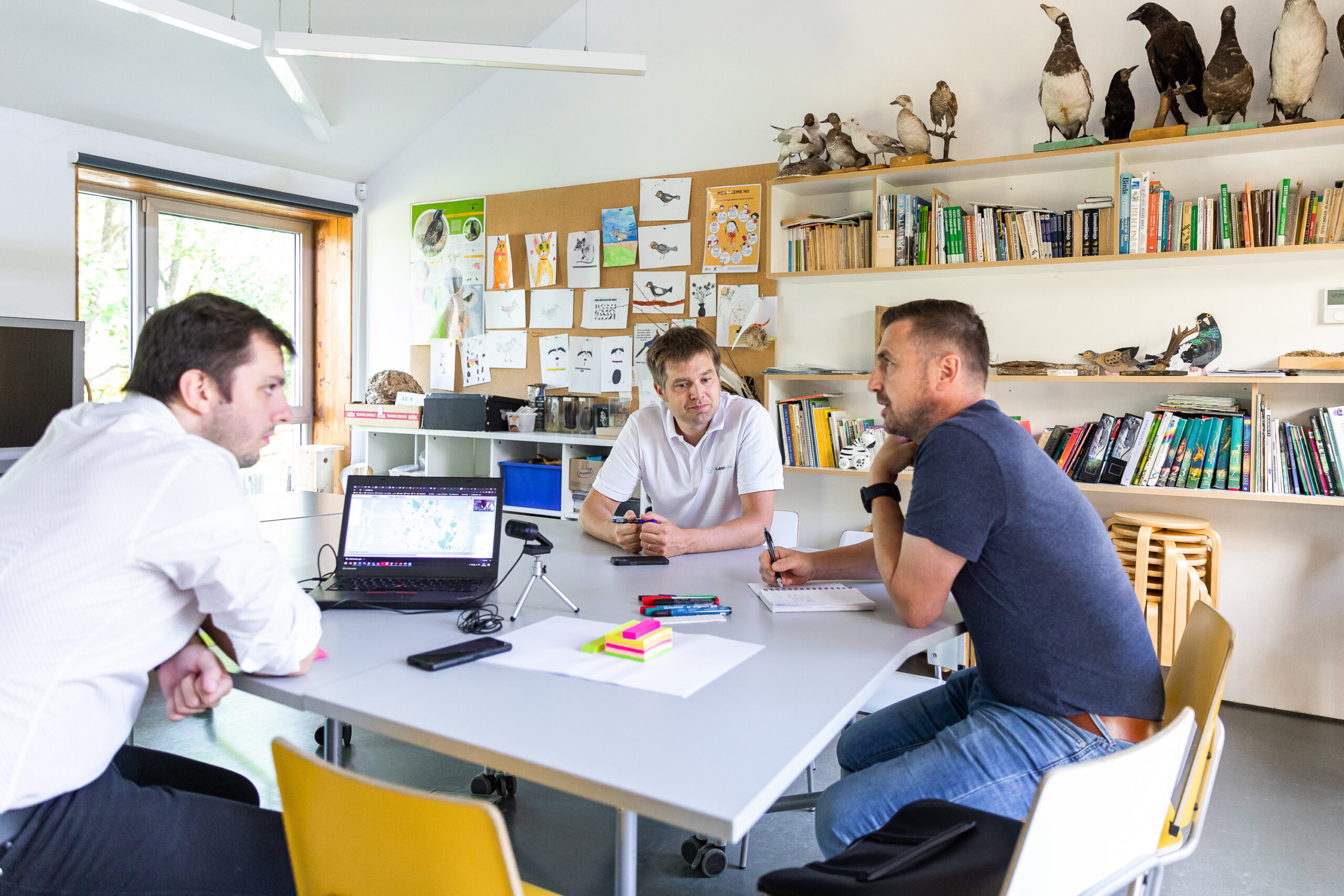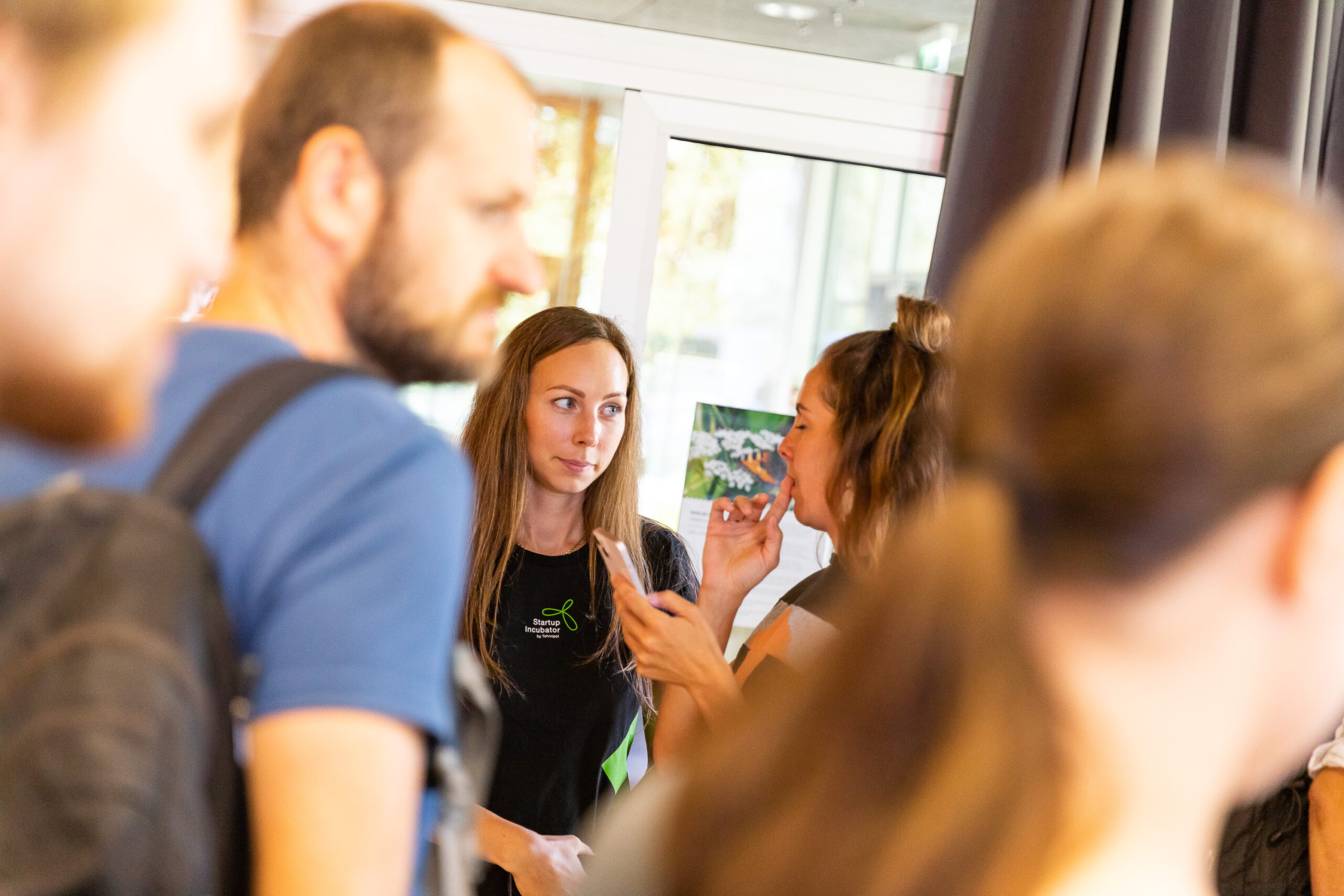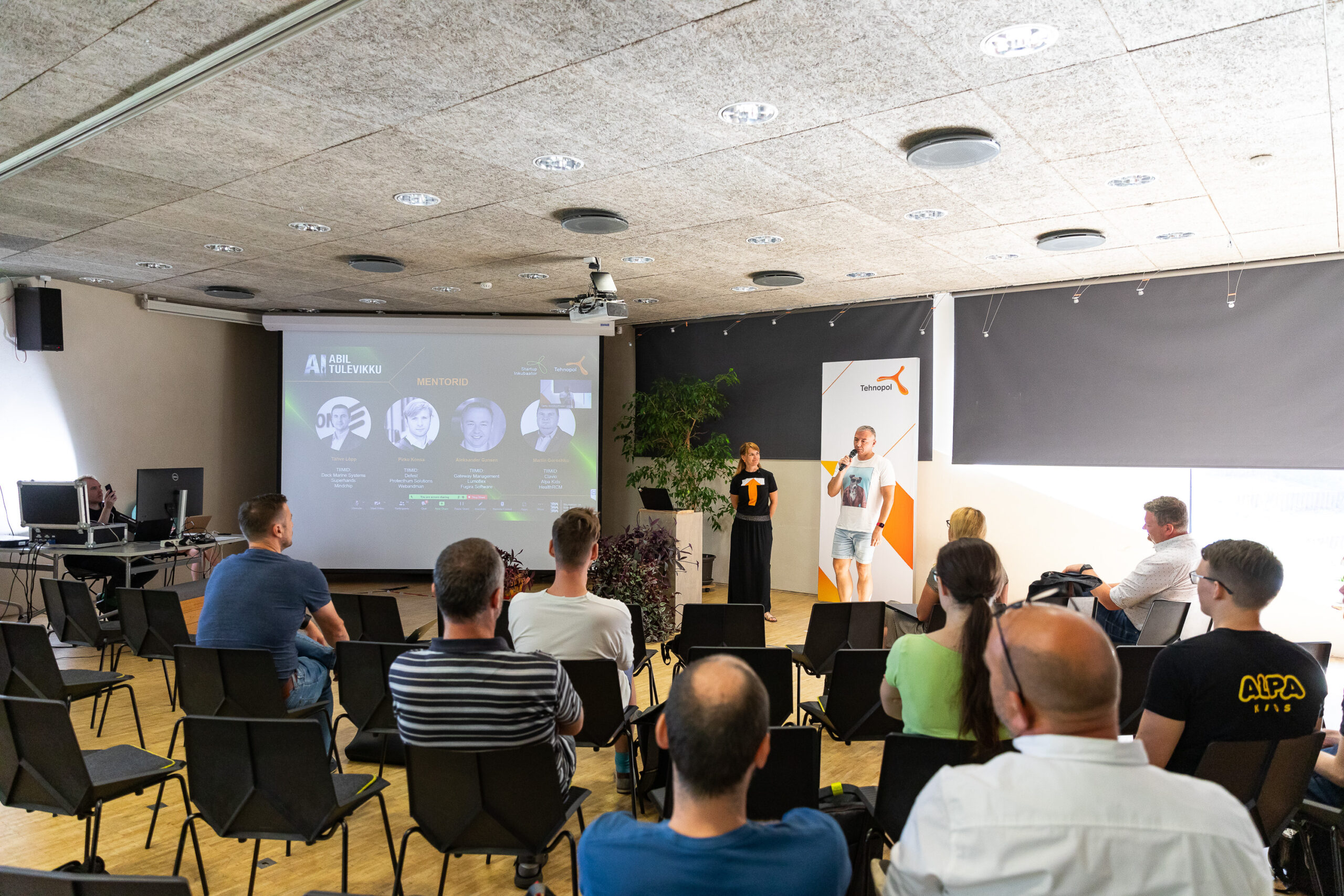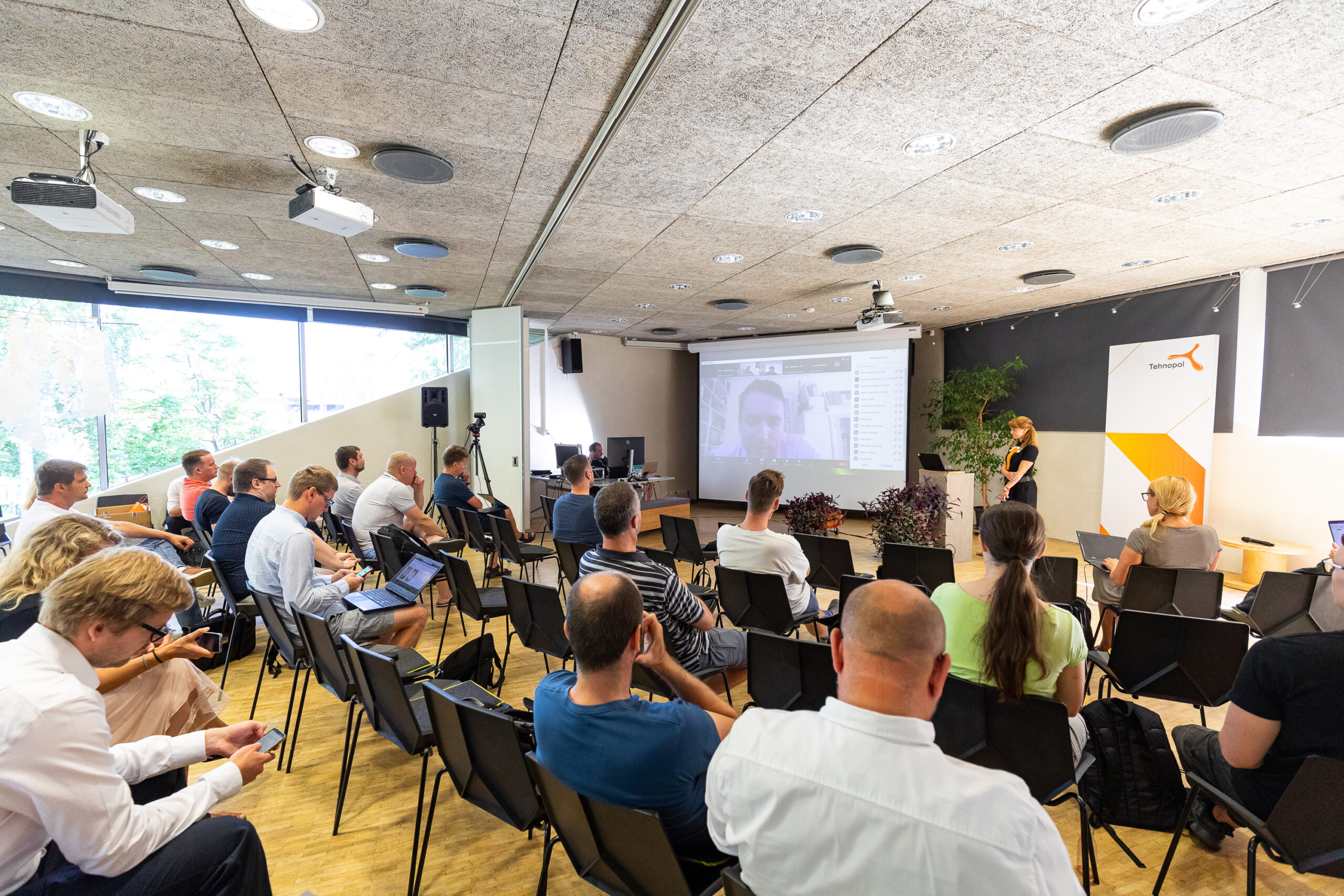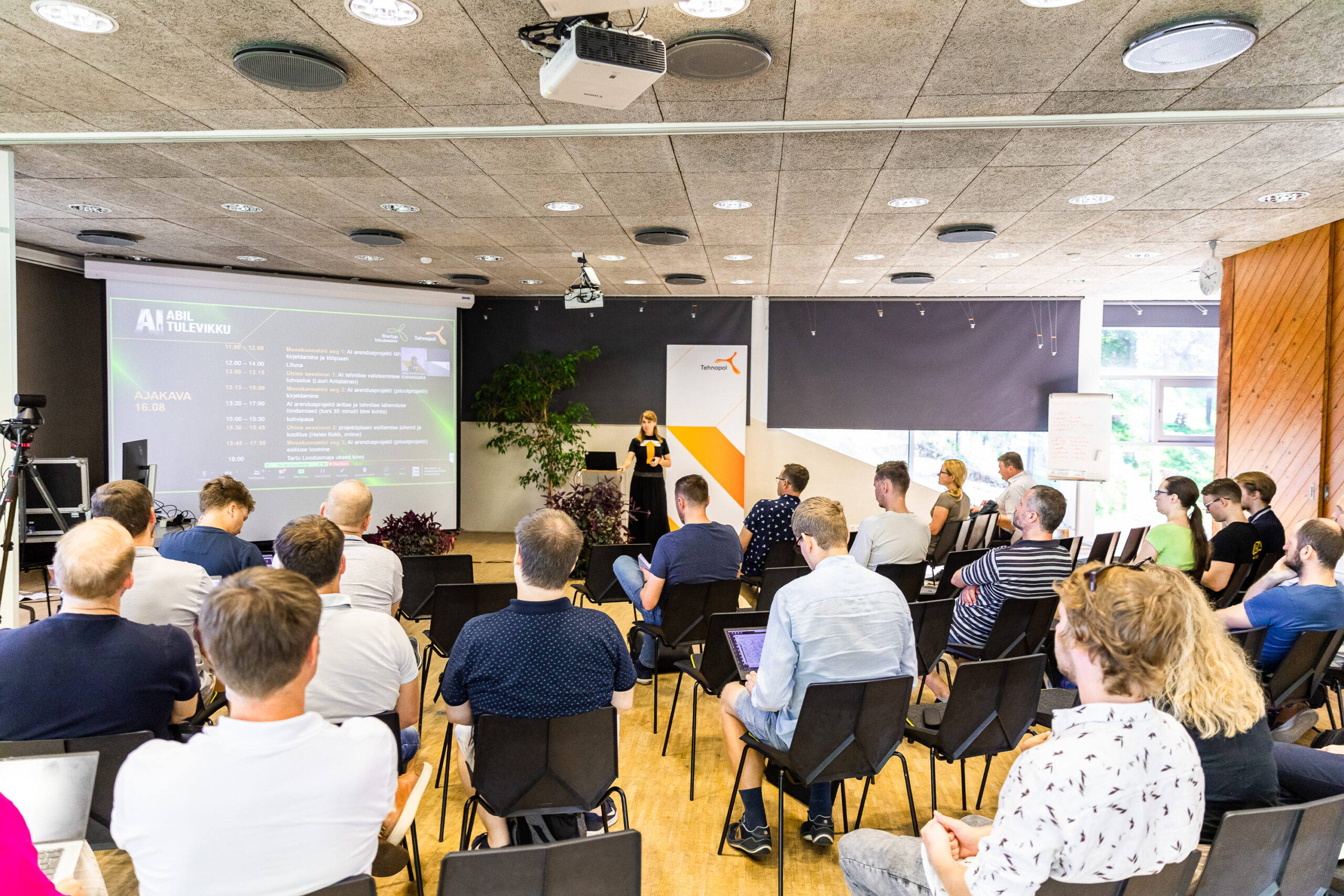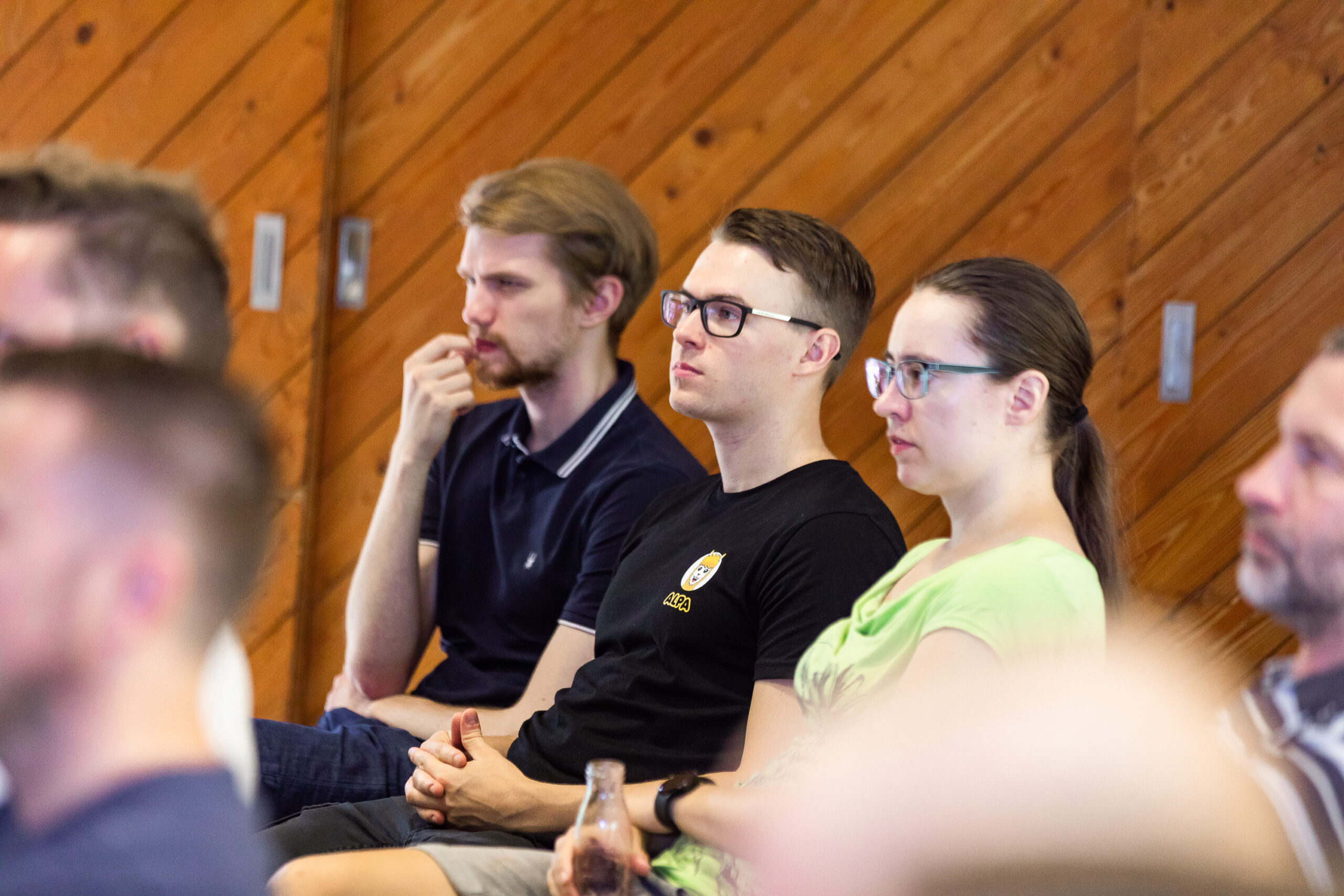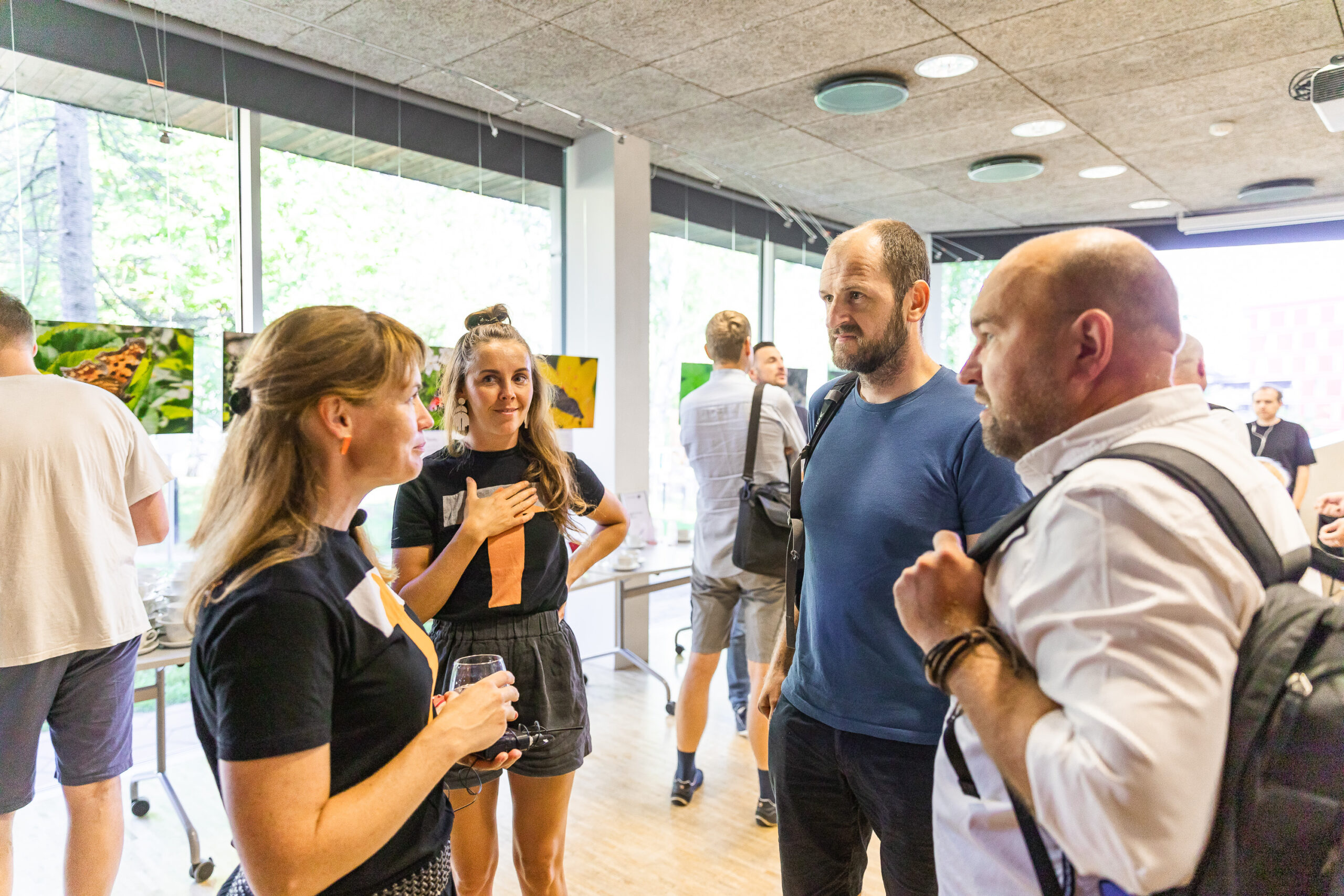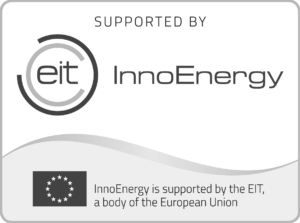30.08.2022
Winners at the Tehnopol AI bootcamp were a robot lifter and an educational algorithm
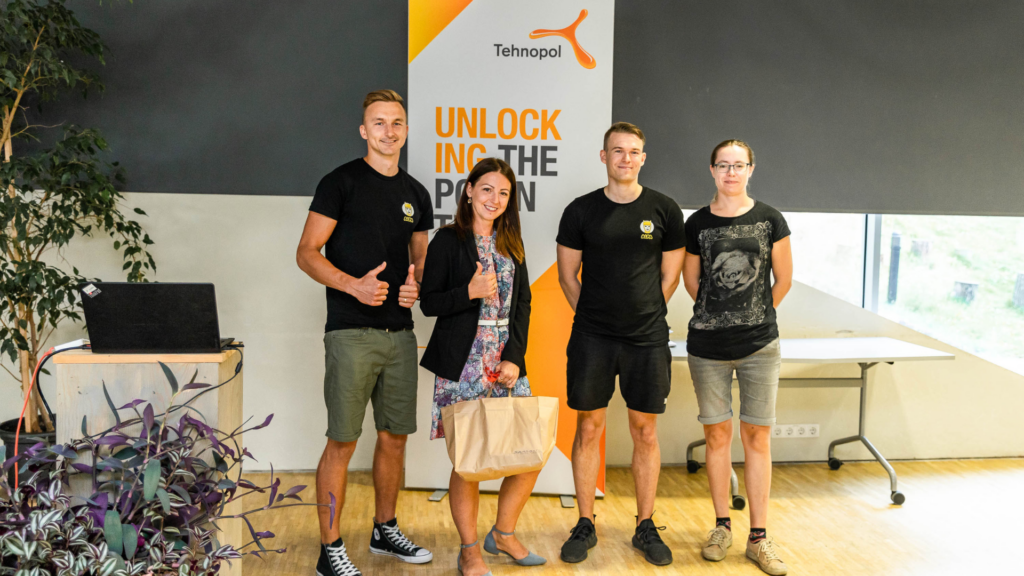
The AI bootcamp run by the Tehnopol Science and Business Park gave funding for development to eight companies, and a total of 300,000 euros was invested in pilot projects.
The European Commission’s Digital Economy and Society Index (DESI) shows that the majority of Estonian businesses rarely use new technology, as only 3% of companies use artificial intelligence solutions for example, which is well below the 75% targeted by the European Digital Decade. However, the AI bootcamps organised by Tehnopol, the first of them in February and the second one just now in August, have shown that developing artificial intelligence is very important for Estonian companies and they are increasingly interested in it.
Minister of Entrepreneurship and Information Technology Kristjan Järvan underlined that using artificial intelligence allows all local businesses to remain competitive in a rapidly changing global economic space. “Artificial intelligence solutions have an important role to play in automating and digitalising working processes, leading to an increase in value added. Companies in many different sectors in Estonia are already producing top-quality products and services, but increased use of artificial intelligence will drive a new leap forward in development”, he said. He added that innovative solutions help businesses work smarter and use resources more sustainably. “The companies that will succeed in tighter international competition are those that can apply smart solutions. The bootcamp has shown that Estonian companies have many exciting ideas for ways to integrate artificial intelligence solutions into their operations. This demonstrates that new global success stories are going to emerge from Estonia, and we should all feel proud about this”, he concluded.
Indrek Orav, CEO of the Tehnopol Science and Business Park, said that besides increasing competitiveness, the application of artificial intelligence would help companies reduce errors, be more efficient in their work, and save money. “We want to support companies that develop by applying innovative solutions and with this programme we are bringing together the challenges and solutions of AI, financing pilot projects, and so creating inspiring examples”, he said, adding that the aim of Tehnopol is to support world-changing innovation and that artificial intelligence is a clear source of pioneering innovation.
The largest financing grants went to Deck Marine Systems and ALPA Kids
Companies working in healthcare, green and educational technologies were invited to the bootcamp this time alongside manufacturing companies. There were 12 teams working on their projects at the two-day bootcamp, and their work was led by experienced mentors and experts in artificial intelligence. Project plans and the results of the work were presented at the end of the bootcamp to a panel of experts comprising Ott Velsberg from the Ministry of Economic Affairs and Communications, Anna-Greta Tsahkna from Timbeter, and Yrjö Ojasaar from ChangeVentures.
HeBA Clinic and Solarstone were awarded 15,000 euros to develop their solutions, Superhands and Mindchip received 25,000 euros, Protecthum Solutions got 30,000 euros, and Claivo was awarded 40,000 euros. The largest grants of 75,000 euros went to Deck Marine Systems and ALPA Kids.
Deck Marine Systems came to the bootcamp to develop the artificial intelligence component of a robotic ship lifter. CEO of Deck Marine Systems, Dmitri Jekimov, said that the bootcamp was just right for them because they had received excellent feedback. “The bootcamp exceeded our expectations. There was a lot of competition and we are greatly honoured and very pleased to have been chosen. We now have a lot of work in front of us”, said Jekimov, who also recommended that others join the bootcamp.
ALPA Kids plans to use the financing to develop its science-based algorithm for learning and education. CEO and co-founder Kelly Lilles said that the bootcamp came at just the right time for them. “We were just thinking with our team about using artificial intelligence, when we saw the information about the bootcamp and immediately applied for it. We came here primarily to get support from mentors, as such programmes can always help you to keep your work on track when deadlines loom”, she said. She recommended that all companies, especially those in education technology, should take advantage of such opportunities.
Challenges were brought to the bootcamp by HeBA Clinic, Solarstone, Gateway Management, Superhands, Mindchip, ALPA Kids, Protecthum Solutions, Claivo, Deck Marine Systems, Textier, DefEST, and Fugira Software.
The artificial intelligence mentors who guided the companies in constructing their technical solutions were Tiit Sepp from STACC, Marko Saviauk from Leanest, and Otto Mättas from Tallinn University of Technology. The business mentors were Aleksander Gansen, Tähve Lôpp, Pirko Konsa, and Martin Goroško. The solutions were assessed for their AI technology by Roger Allas, Aleksander Miina and Lauri Antalainen.
The teams that received funding now have four months to carry out the projects they presented.
